
San Miguel: The Coastal Gem of Lima
San Miguel, located in the heart of Lima, Peru, is a captivating blend of modernity and tradition, waiting to be explored by intrepid travelers. This delightful neighborhood boasts stunning coastal views, a vibrant local culture, and a plethora of attractions that cater to every kind of tourist. Begin your journey at the Costa Verde, a scenic stretch of coastline that offers breathtaking views of the Pacific Ocean. This area is perfect for a leisurely stroll, a relaxing picnic, or even a thrilling paragliding experience. The nearby Parque de las Leyendas, Lima’s largest zoo, provides an educational and entertaining day out for families and animal lovers alike. San Miguel is also home to an array of shopping centers and markets, such as the popular Plaza San Miguel. Here, visitors can indulge in retail therapy, savor local delicacies, and immerse themselves in the bustling atmosphere. The neighborhood’s culinary scene is a delightful fusion of traditional Peruvian flavors and international cuisines, ensuring a memorable dining experience. Cultural enthusiasts will appreciate the numerous museums and historical sites scattered throughout San Miguel. The nearby Huaca Huantille is an ancient archaeological site that offers a fascinating glimpse into the pre-Columbian history of the region. Additionally, the local art scene is thriving, with various galleries and cultural centers showcasing the works of talented Peruvian artists.
Local tips in San Miguel
- Visit the Costa Verde early in the morning for the best views and a peaceful walk.
- Check the feeding times at Parque de las Leyendas to catch the animals at their liveliest.
- Bargain at local markets for unique souvenirs at great prices.
- Try local dishes like ceviche and anticuchos at the neighborhood eateries.
- Wear comfortable shoes as you'll be doing a lot of walking, especially when exploring archaeological sites.
San Miguel: The Coastal Gem of Lima
San Miguel, located in the heart of Lima, Peru, is a captivating blend of modernity and tradition, waiting to be explored by intrepid travelers. This delightful neighborhood boasts stunning coastal views, a vibrant local culture, and a plethora of attractions that cater to every kind of tourist. Begin your journey at the Costa Verde, a scenic stretch of coastline that offers breathtaking views of the Pacific Ocean. This area is perfect for a leisurely stroll, a relaxing picnic, or even a thrilling paragliding experience. The nearby Parque de las Leyendas, Lima’s largest zoo, provides an educational and entertaining day out for families and animal lovers alike. San Miguel is also home to an array of shopping centers and markets, such as the popular Plaza San Miguel. Here, visitors can indulge in retail therapy, savor local delicacies, and immerse themselves in the bustling atmosphere. The neighborhood’s culinary scene is a delightful fusion of traditional Peruvian flavors and international cuisines, ensuring a memorable dining experience. Cultural enthusiasts will appreciate the numerous museums and historical sites scattered throughout San Miguel. The nearby Huaca Huantille is an ancient archaeological site that offers a fascinating glimpse into the pre-Columbian history of the region. Additionally, the local art scene is thriving, with various galleries and cultural centers showcasing the works of talented Peruvian artists.
Iconic landmarks you can’t miss
Juan Pablo II Park
Explore the lush landscapes and vibrant atmosphere of Juan Pablo II Park, a must-see urban oasis in San Miguel, Peru, perfect for relaxation and outdoor fun.
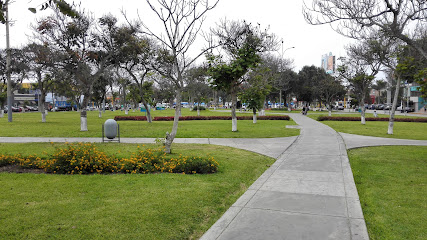
Cultural Plaza San Miguel Park
Discover the tranquility and cultural richness of Cultural Plaza San Miguel Park, a perfect retreat in San Miguel, Peru.
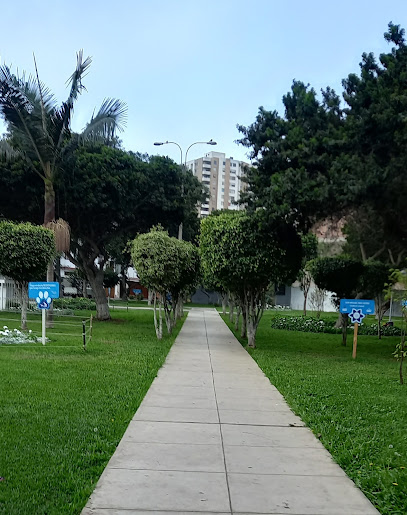
Monument to John Lennon
Discover the Monument to John Lennon in Lima, Peru—a vibrant tribute to peace, music, and the legacy of a legendary Beatle.
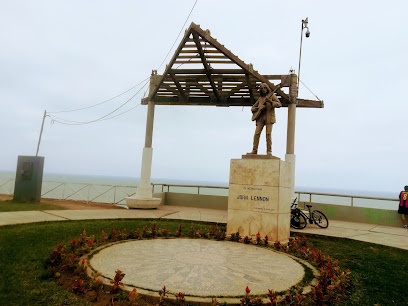
Huaca Huantinamarca
Explore the ancient ruins of Huaca Huantinamarca in San Miguel, a serene archaeological site blending history with natural beauty.
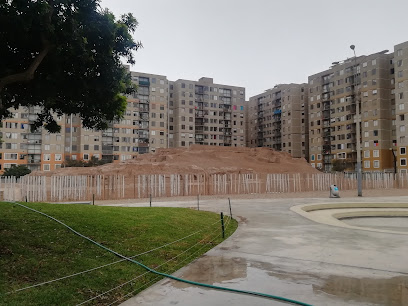
House of Terror
Discover the House of Terror in San Miguel, a museum uncovering the chilling narratives of Peru's historical struggles and the resilience of its people.
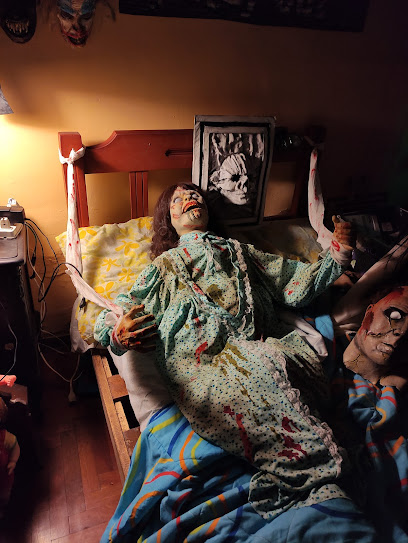
Huaca San Marcos - San Marcos
Explore Huaca San Marcos in Lima, an archaeological gem revealing the rich history of Peru's ancient civilizations through its stunning ruins.
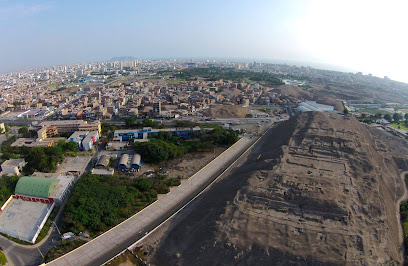
Huaca Tres Palos
Explore Huaca Tres Palos, an archaeological gem in San Miguel, Peru, where ancient history comes alive amidst stunning landscapes and rich cultural heritage.
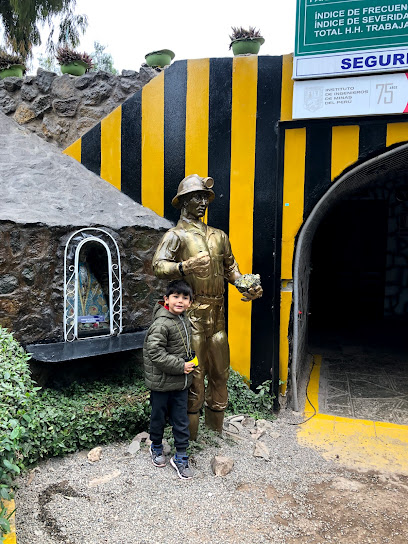
Huaca San Miguel
Explore Huaca San Miguel: A captivating archaeological site in San Miguel, Lima that reveals the rich heritage of pre-Columbian Peru.
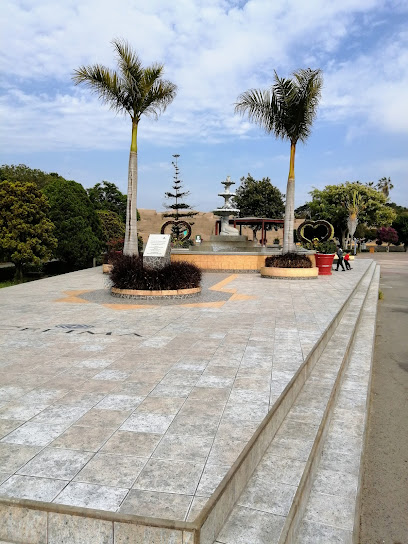
Huaca 34
Explore Huaca 34 in San Miguel, a captivating archaeological site that reveals the rich heritage of Peru's ancient civilizations.
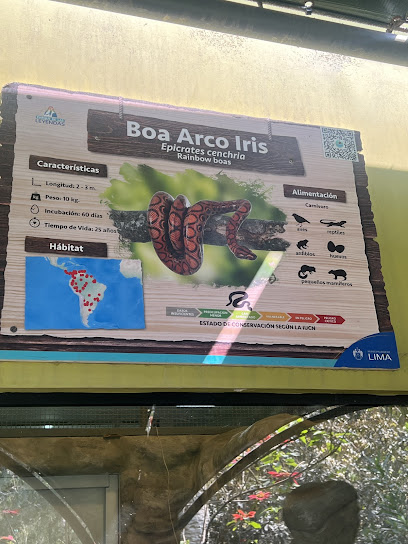
Virgen Maria Auxiliadora
Experience the serenity of Virgen Maria Auxiliadora, a spiritual monument in San Miguel, Lima, set within the tranquil Parque Tagore.

Unmissable attractions to see
Magic Water Circuit of the Reserve Park
Experience the Magic Water Circuit of the Reserve Park in Lima, where stunning illuminated fountains create a mesmerizing spectacle every evening.
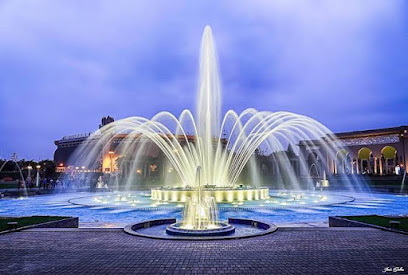
Park of the Legends Zoo
Explore the diverse wildlife and cultural heritage at the Park of the Legends Zoo, a top tourist attraction in San Miguel, Peru.
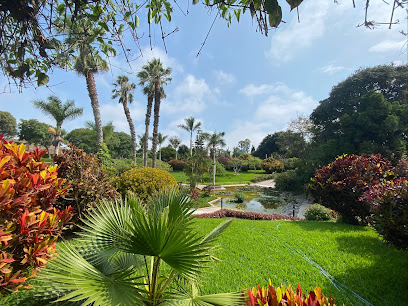
PLAZA DE LA BANDERA
Explore the vibrant Plaza de la Bandera in Pueblo Libre, a historic square rich in culture, beauty, and social life.
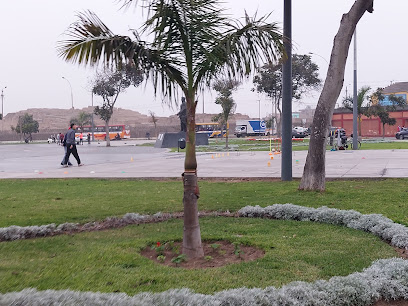
Parque Media Luna
Explore the lush landscapes and vibrant culture of Parque Media Luna, a serene park perfect for families and nature lovers in San Miguel.
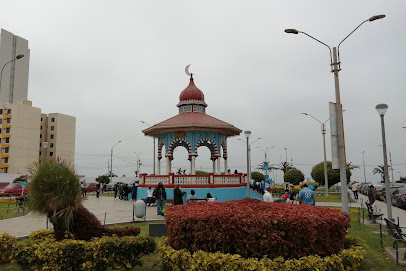
Juan Pablo II Park
Discover tranquility and nature at Juan Pablo II Park, San Miguel's urban oasis filled with greenery, recreation, and community spirit.
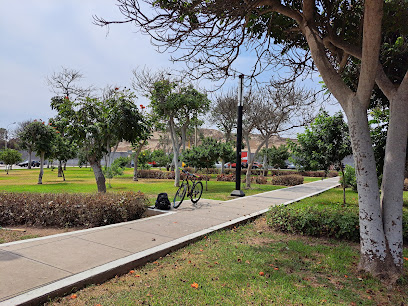
Cultural Plaza San Miguel Park
Discover the lush landscapes and cultural vibrancy of Cultural Plaza San Miguel Park, a must-visit haven for relaxation and local art in San Miguel.
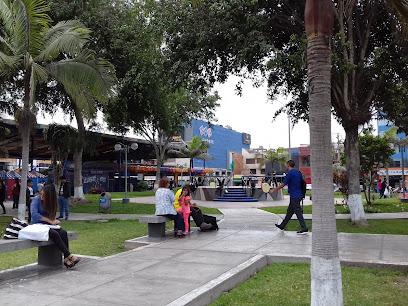
House of Terror
Discover the depths of history at the House of Terror in San Miguel, where chilling exhibits reveal the darker side of our past.
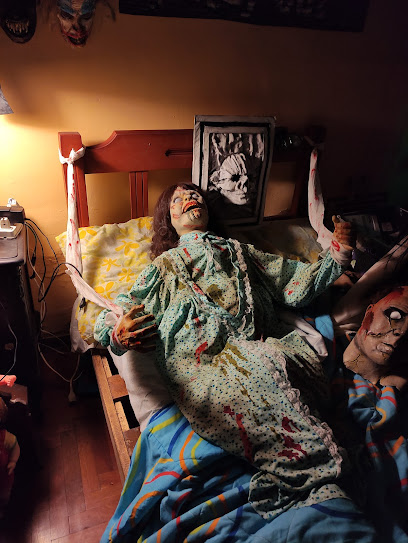
Huaca San Miguel
Uncover the rich history of Huaca San Miguel, a pre-Columbian archaeological site that offers a unique glimpse into ancient Peru's civilization.
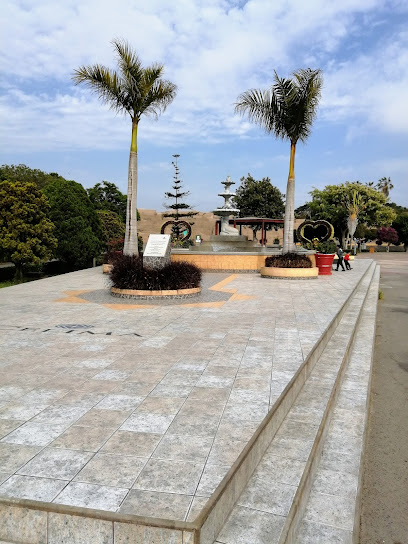
Huaca La Palma
Discover the ancient pyramid of Huaca La Palma in Lima, a remarkable site that reveals the rich history of Peru's pre-Columbian cultures.
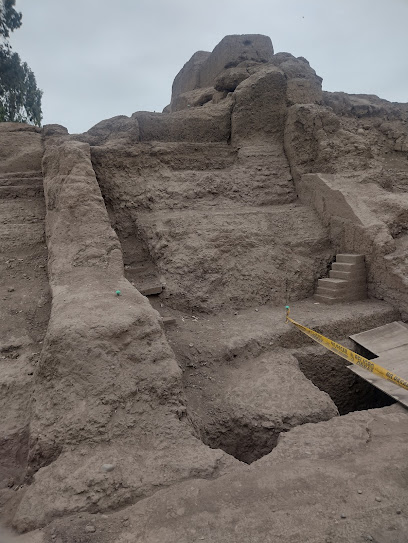
Essential places to dine
Hikari San Miguel
Experience authentic Peruvian cuisine at Hikari San Miguel - where every bite tells a story.

El Tronco
Discover El Tronco: An authentic Peruvian restaurant in Lima offering delicious traditional cuisine in a welcoming atmosphere.
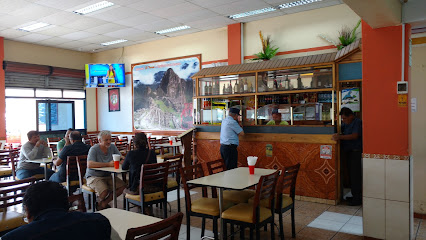
LongHorn Grill & Drinks - San Miguel
Discover a culinary haven at LongHorn Grill & Drinks in San Miguel – where delicious grilled flavors meet vibrant local culture.
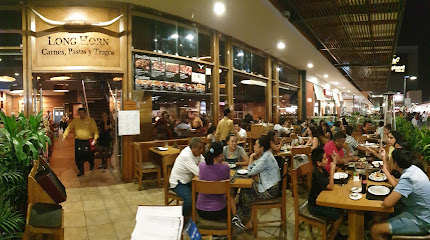
Tanta San Miguel
Experience the essence of Peruvian cuisine at Tanta San Miguel with delicious chicken dishes and vibrant local flavors.
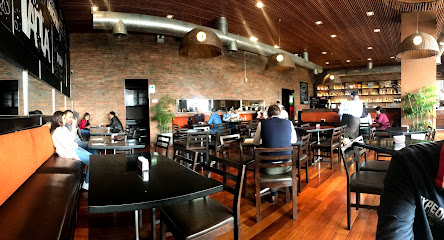
La Bodega de la Trattoria
Experience authentic Italian cuisine at La Bodega de la Trattoria in San Miguel - where every meal feels like a trip to Italy.
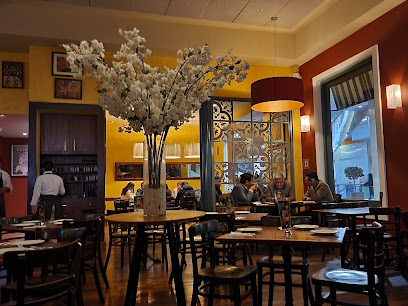
Chepita Royal
Experience exquisite Peruvian cuisine at Chepita Royal - where tradition meets elegance in every dish.
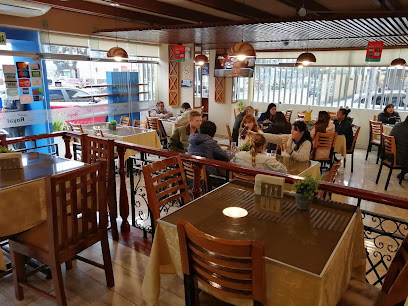
Lucio Caffè - San Miguel
Experience the vibrant atmosphere of Lucio Caffè in San Miguel – where exceptional coffee meets delicious cuisine in a charming setting.
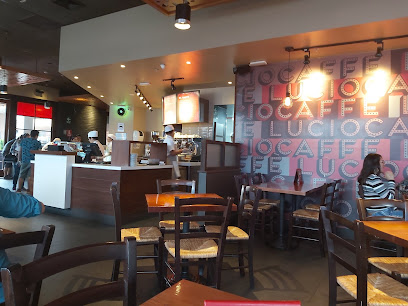
Marejada san Miguel
Savor the best of Peruvian cuisine at Marejada San Miguel's vibrant buffet with diverse flavors and delightful dishes.
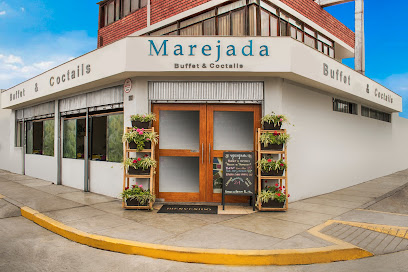
Manos Criollas Restaurant
Discover the flavors of Peru at Manos Criollas Restaurant in San Miguel – your destination for authentic Peruvian dining experiences.
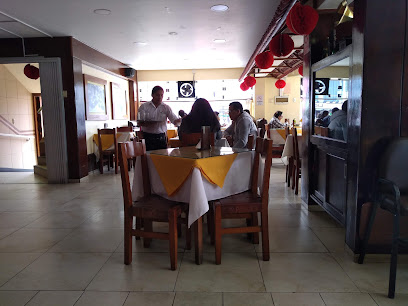
Puntarenas Restaurante - San Miguel
Experience authentic Peruvian flavors at Puntarenas Restaurante - San Miguel with fresh seafood dishes crafted from the ocean’s bounty.
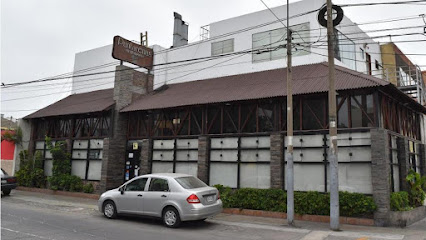
Markets, malls and hidden boutiques
Plaza San Miguel
Discover the vibrant shopping experience at Plaza San Miguel, where fashion, food, and fun come together in the heart of San Miguel, Peru.
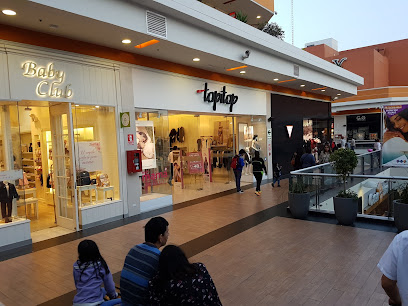
Open Plaza La Marina
Experience the blend of culture and modern shopping at Open Plaza La Marina, a top destination in San Miguel, Lima.
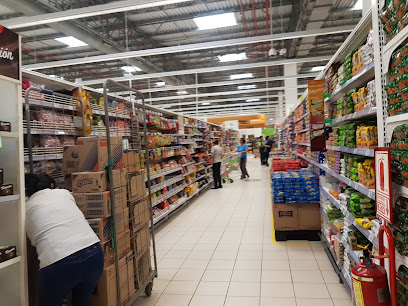
Shopping Center San Miguel
Discover an unparalleled shopping experience at Shopping Center San Miguel, where diverse brands meet delectable dining in a vibrant setting.
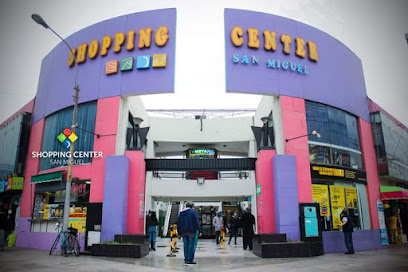
Calimod Store | Plaza San Miguel | Zapatos de cuero
Discover the finest selection of leather footwear at Calimod Store, your go-to shoe destination in San Miguel's Plaza San Miguel.
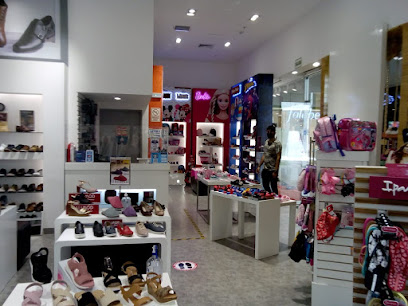
Miniso San Miguel
Discover trendy home goods and stylish accessories at Miniso San Miguel, where affordability meets quality in a vibrant shopping environment.
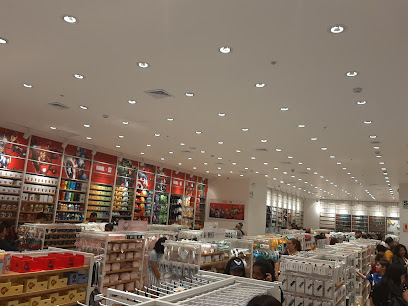
Crazy Stuff
Explore Crazy Stuff, San Miguel's premier destination for unique collectibles and artisan treasures that reflect Peru's rich culture and history.
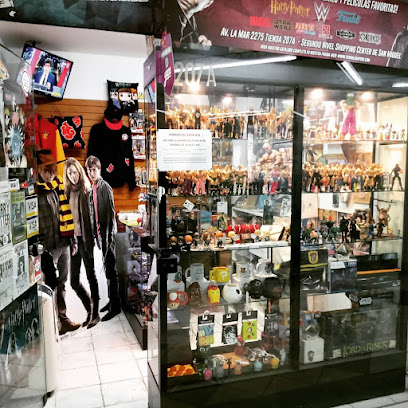
Bell@romas
Explore Bell@romas in San Miguel for exquisite gifts, artisanal crafts, and unique perfumes that capture the essence of Peru.
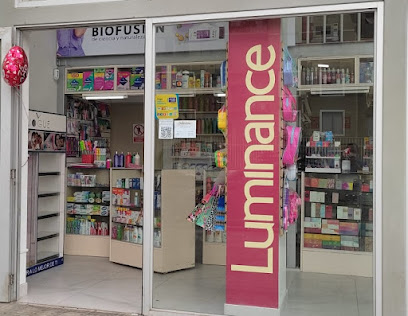
Curiosidades de Alice
Discover unique gifts and handcrafted treasures at Curiosidades de Alice in San Miguel, the perfect stop for memorable souvenirs.

TM - Plaza San Miguel
Discover the vibrant blend of culture and style at TM - Plaza San Miguel, your boutique destination in the heart of San Miguel.
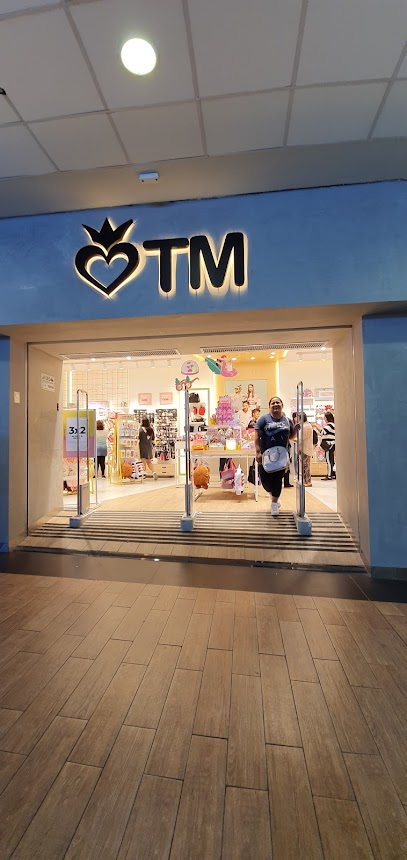
LSS (LimaSmokeShop) - San Miguel
Discover LSS (LimaSmokeShop) in San Miguel: A boutique showcasing the rich culture and unique craftsmanship of Peru through its curated selection of artisan products.

Essential bars & hidden hideouts
Holy Funy Restobar
Experience the vibrant flavors of Peru at Holy Funy Restobar, a top grill destination in San Miguel offering a delightful culinary adventure.
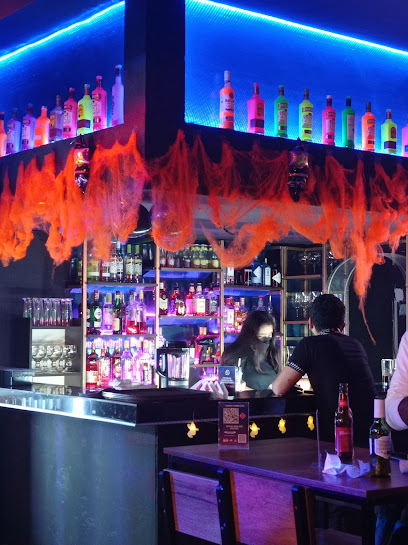
EN Lounge & Bar
Explore a unique fusion of gastropub cuisine and vibrant nightlife at EN Lounge & Bar in San Miguel, where every bite tells a story.
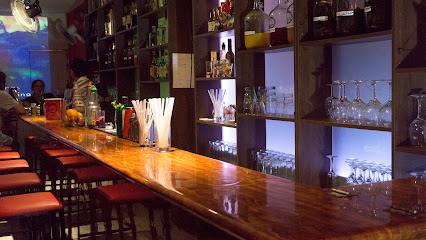
Café Babilonia Restaurant Bar
Discover the flavors of Peru at Café Babilonia, where grilled delights meet a vibrant atmosphere in the heart of San Miguel.
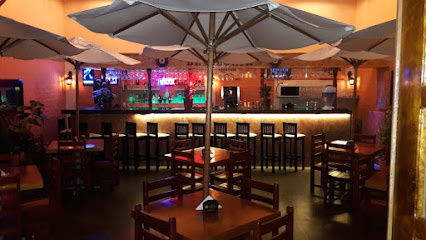
Mi Tercer Lugar
Experience the vibrant nightlife at Mi Tercer Lugar, a lively bar in San Miguel, Lima, renowned for its cocktails and welcoming atmosphere.
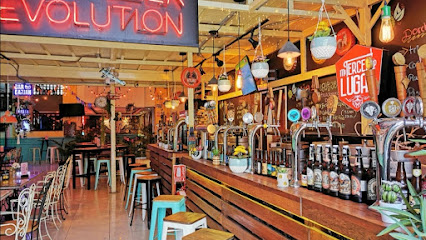
Pacha Inti
Experience the vibrant flavors of Peru at Pacha Inti, a premier gastropub in San Miguel, offering innovative dishes and cocktails in a lively atmosphere.
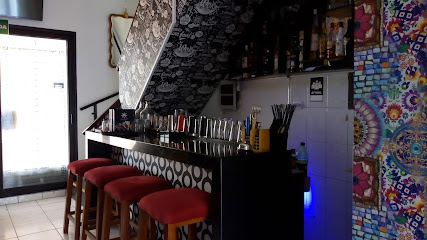
Dorcher Tap Room San Miguel
Discover Dorcher Tap Room in San Miguel: a vibrant gastropub offering craft beers and innovative dishes in a lively atmosphere.
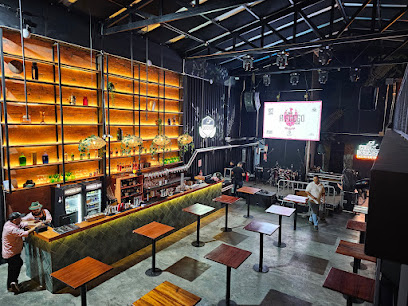
Oriundo Cantina
Experience the vibrant nightlife of San Miguel at Oriundo Cantina, where local flavors and lively atmosphere create unforgettable moments.
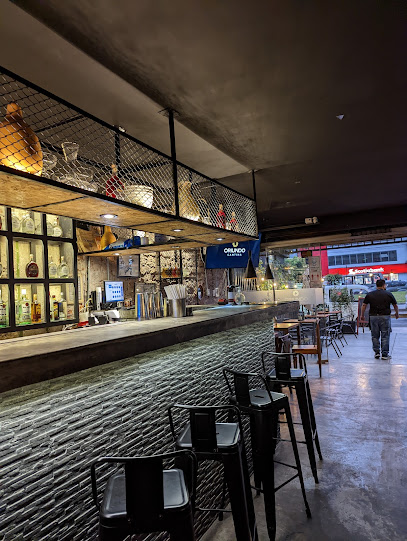
Festival San Miguel
Discover the vibrant flavors of Peru at Festival San Miguel, a gastropub offering a unique blend of local and international cuisine in a lively atmosphere.
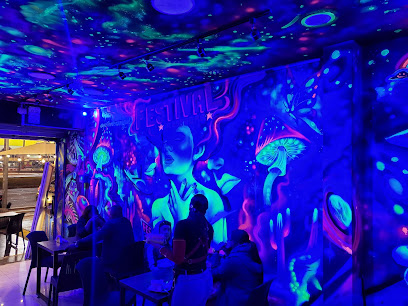
7mo Bar
Discover the lively spirit of 7mo Bar in Pueblo Libre, where vibrant drinks and friendly faces create the perfect atmosphere for relaxation and enjoyment.
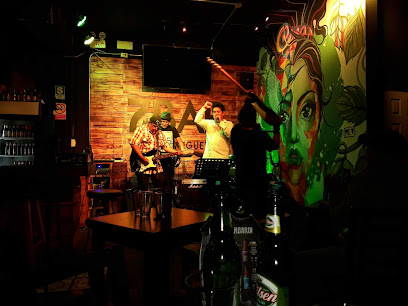
FRIENDS RESTOBAR
Experience the vibrant nightlife at FRIENDS RESTOBAR in San Miguel, where delightful drinks and local flavors come together in a lively atmosphere.
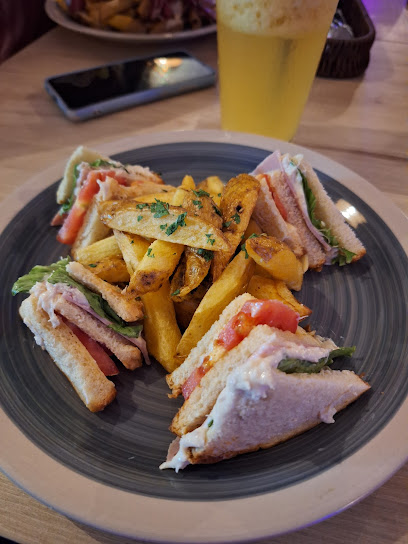
Local Phrases
-
- HelloHola
[OH-la] - GoodbyeAdiós
[ah-DYOHS] - YesSí
[SEE] - NoNo
[NOH] - Please/You're welcomePor favor/De nada
[por fah-BOHR/de NAH-dah] - Thank youGracias
[GRAH-syahs] - Excuse me/SorryPerdón/Lo siento
[pehr-DOHN/loh SYEHN-toh] - How are you?¿Cómo estás?
[KOH-moh ehs-TAHS] - Fine. And you?Bien. ¿Y tú?
[BYEHN. ee too] - Do you speak English?¿Hablas inglés?
[AH-blahs een-GLEHS] - I don't understandNo entiendo
[NOH ehn-TYEHN-doh]
- HelloHola
-
- I'd like to see the menu, pleaseMe gustaría ver el menú, por favor
[may goos-tah-REE-ah behr ehl meh-NOO, por fah-BOHR] - I don't eat meatNo como carne
[NOH KOH-moh KAHR-neh] - Cheers!¡Salud!
[sah-LOOD] - I would like to pay, pleaseMe gustaría pagar, por favor
[may goos-tah-REE-ah pah-GAHR, por fah-BOHR]
- I'd like to see the menu, pleaseMe gustaría ver el menú, por favor
-
- Help!¡Ayuda!
[ah-YOO-dah] - Go away!¡Vete!
[VEH-teh] - Call the Police!¡Llama a la policía!
[YAH-mah ah lah poh-LEE-see-ah] - Call a doctor!¡Llama a un médico!
[YAH-mah ah oon MEH-dee-koh] - I'm lostEstoy perdido
[eh-STOY pehr-DEE-doh] - I'm illEstoy enfermo
[eh-STOY ehn-FEHR-moh]
- Help!¡Ayuda!
-
- I'd like to buy...Me gustaría comprar...
[may goos-tah-REE-ah kohm-PRAR] - I'm just lookingSolo estoy mirando
[SOH-loh ehs-TOY mee-RAHN-doh] - How much is it?¿Cuánto cuesta?
[KWAHN-toh KWEHS-tah] - That's too expensiveEsto es demasiado caro
[EHS-toh ehs deh-mah-SYA-doh KAH-roh] - Can you lower the price?¿Puede bajar el precio?
[PWEH-deh BAH-hahr ehl PREH-syoh]
- I'd like to buy...Me gustaría comprar...
-
- What time is it?¿Qué hora es?
[keh OR-ah ehs] - It's one o'clockEs la una en punto
[ehs lah OO-nah ehn POON-toh] - Half past (10)Y media (10)
[ee MEH-dee-ah (DEE-ehs)] - MorningMañana
[mah-NYAH-nah] - AfternoonTarde
[TAHR-deh] - EveningNoche
[NOH-cheh] - YesterdayAyer
[ah-YEHR] - TodayHoy
[oy] - TomorrowMañana
[mah-NYAH-nah] - 1Uno
[OO-noh] - 2Dos
[dohs] - 3Tres
[trehs] - 4Cuatro
[KWAH-troh] - 5Cinco
[SEEN-koh] - 6Seis
[says] - 7Siete
[SYEH-teh] - 8Ocho
[OH-choh] - 9Nueve
[NWEH-veh] - 10Diez
[DYEHs]
- What time is it?¿Qué hora es?
-
- Where's a/the...?¿Dónde está...?
[DOHN-deh ehs-TAH] - What's the address?¿Cuál es la dirección?
[KWAHL ehs lah dee-rehk-SYOHN] - Can you show me (on the map)?¿Puedes mostrarme (en el mapa)?
[PWEH-dehs mohs-TRAHR-meh (ehn ehl MAH-pah)] - When's the next (bus)?¿Cuándo es el próximo (autobús)?
[KWAHN-doh ehs ehl PROH-ksee-moh (ow-toh-BOOS)] - A ticket (to ....)Un boleto (a ...)
[oon boh-LEH-toh (ah ...)]
- Where's a/the...?¿Dónde está...?
History of San Miguel
-
The area now known as San Miguel has a rich history that predates the Spanish conquest. It was originally inhabited by various pre-Columbian cultures, including the Lima and the Ichma civilizations, who established agricultural practices along the fertile coastline. The nearby Rimac River provided essential irrigation, allowing these groups to thrive and develop complex societies.
-
In the 16th century, during the Spanish colonization of Peru, San Miguel began to take shape as a formal settlement. It was established as part of the larger Lima region, with the Spanish implementing their agricultural and architectural influences. The construction of churches and colonial homes marked the area's transformation, blending indigenous and European styles.
-
San Miguel was officially established as a district in 1857, separating itself from the neighboring areas. It became a residential zone for the growing population of Lima, with an influx of migrants seeking opportunities in the capital. The district's development reflected Lima's urban expansion during the late 19th and early 20th centuries.
-
The mid-20th century saw significant urbanization in San Miguel, characterized by the construction of large housing complexes and infrastructure improvements. The district became home to a diverse population, including many immigrants from the Andean regions. This demographic shift contributed to a vibrant cultural tapestry, with various festivals and traditions emerging.
-
Today, San Miguel is known for its cultural richness, with numerous parks, cultural centers, and community events that celebrate its history. The district hosts the iconic Parque de las Leyendas, which combines a zoo and archaeological site, showcasing the area's pre-Columbian heritage. San Miguel continues to evolve, balancing modernization with the preservation of its historical and cultural identity.
San Miguel Essentials
-
San Miguel is conveniently located in Lima, easily accessible from various neighborhoods. From Miraflores, you can take a taxi or use the Metropolitano bus system, which has a dedicated line to San Miguel. If you are coming from downtown Lima, the quickest way is to take a taxi or an Uber. Public buses also run frequently from other neighborhoods like Barranco and San Isidro directly to San Miguel, making it easy to reach.
-
San Miguel is well-connected by public transportation. The Metropolitano bus system has several stops in the neighborhood, providing access to other areas in Lima. Local buses and combis are also available, offering an economical way to navigate the area. Bicycles can be rented from local shops, and walking is a pleasant option, especially along the coastal promenade. Taxis and ride-sharing services like Uber are widely used and safe for getting around.
-
San Miguel is generally safe for tourists, but like any urban area, it has its cautionary zones. Areas closer to the beach can be prone to petty theft, especially during peak hours. Always be vigilant with your belongings in crowded places. Avoid walking alone late at night in poorly lit areas. While San Miguel is relatively safe, exercising common sense precautions is advisable.
-
In case of emergencies, dial 911 for police, fire, and medical assistance. There are hospitals and clinics in San Miguel, including the Hospital de la Fuerza Aérea and Clinica San Miguel. Always carry a copy of your identification and travel insurance information. Familiarize yourself with the locations of nearby pharmacies for minor health needs.
-
Fashion: Do wear light and breathable clothing suitable for the warm climate. Avoid overly casual attire when visiting religious sites. Religion: Do respect local customs; when entering churches, dress modestly. Public Transport: Do give up your seat for the elderly and pregnant women. Don't engage in loud conversations or eat on public transport. Greetings: Do greet with a friendly smile or handshake. Don't forget to use polite forms of address. Eating & Drinking: Do try local dishes like ceviche. Don't drink tap water; always opt for bottled water.
-
To experience San Miguel like a local, visit the Mercado de San Miguel, where you can sample fresh fruits, local snacks, and handicrafts. Engage with local vendors and ask for recommendations. Check out the local parks, such as Parque de la Muralla, for a leisurely stroll. Joining in on community events or festivals can enhance your understanding of local culture. Don’t miss the ocean views from the Costa Verde, especially at sunset.
-
Peruvians are warm and welcoming people. It's customary to greet with a handshake or a kiss on the cheek among acquaintances. When dining, it's polite to wait for the host to start eating before you begin. Always express gratitude after a meal, either verbally or with a small gesture. Understanding a few basic Spanish phrases can greatly enhance your interactions and show respect for the local culture.
Nearby Cities to San Miguel
-
Things To Do in Huancayo
-
Things To Do in Ica
-
Things To Do in Huaraz
-
Things To Do in Ayacucho
-
Things To Do in Trujillo
-
Things To Do in Machu Picchu
-
Things To Do in Cusco
-
Things To Do in Chiclayo
-
Things To Do in Arequipa
-
Things To Do in Piura
-
Things To Do in Puno
-
Things To Do in Loja
-
Things To Do in Copacabana
-
Things To Do in Tacna
-
Things To Do in Arica






